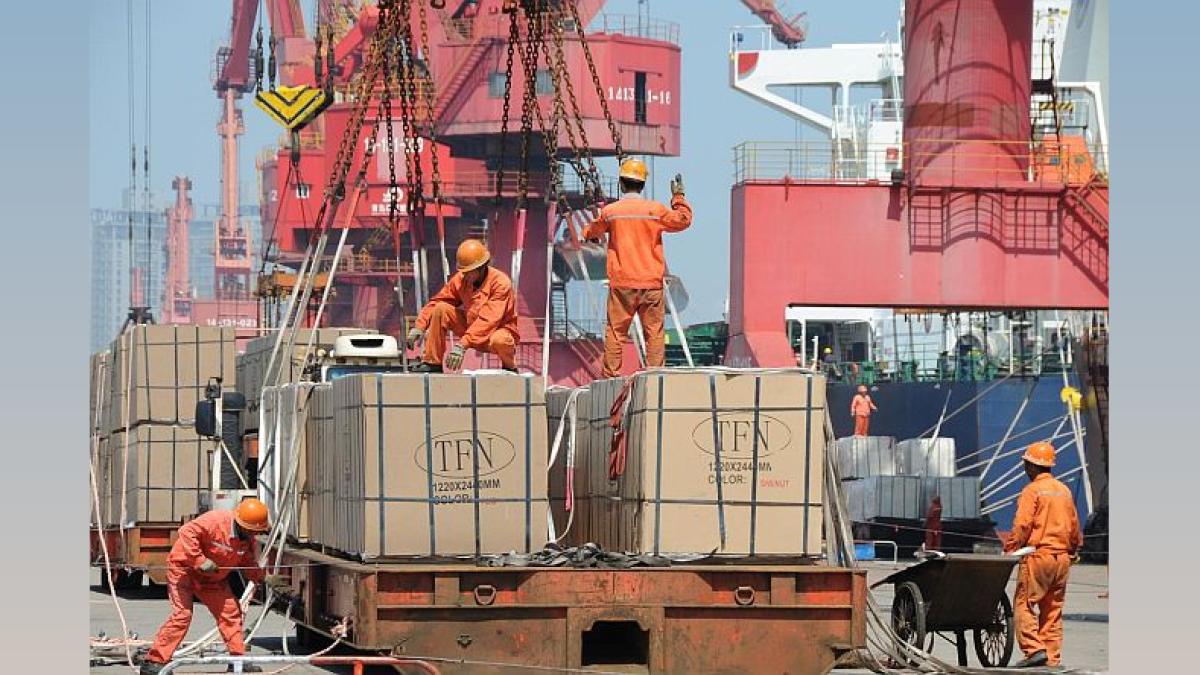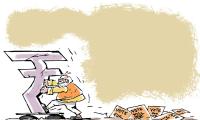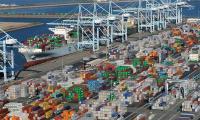China's Exports Rise 2.3% in December Amid Uneven Recovery
China's exports rose slightly in December, but deflationary pressures persist, highlighting an uneven economic recovery in 2023. The country's trade surplus also expanded, while imports rose slightly.

Hong Kong, Jan 12 (AP) China's exports grew slightly for a second consecutive month in December even as deflationary pressures continue, according to official data released Friday, underscoring an uneven recovery in 2023.
Customs data showed that exports in December rose by 2.3% compared to the same period last year to $303.6 billion in a sign that demand may be picking up after months of decline earlier in the year.
Imports also rose by 0.2% compared to the same time last year to $228.2 billion, up from a 0.6% decline in November.
China's total trade surplus for December was $75.3 billion, up 10.1% from $68.3 billion in November.
The continued sluggish external demand is still the main factor restricting export growth, said deputy director Wang Lingjun at a news conference Friday. Factors such as protectionism and unilateralism also have an impact on exports, which will still face many difficulties.
Deflationary pressures persisted in China's economy, with consumer prices in December declining 0.3%, a third consecutive month in decline, data from the National Bureau of Statistics showed Friday.
China's producer price index for December which measures prices that factories charge wholesalers fell 2.7% in a 15th straight month of decline.
Over the course of this year, we think that food and energy price deflation will continue to ease, while the ongoing cyclical recovery in economic activity will underpin a slight rise in core inflation, Julian Evans-Pritchard and Zichun Huang from Capital Economics wrote in a note Friday.
That said, weak global growth and continued overinvestment in China means that deflation risks will continue to hang over its economy for some time.
Trade with Japan, Southeast Asian countries, the European Union and the U.S. has declined this year.
Demand for Chinese exports has been weak since the Federal Reserve and central banks in Europe and Asia began raising interest rates last year to cool inflation that was at multi-decade highs.
China's property sector remains a drag on the economy, with sales slumping and developers struggling to repay massive amounts of debt.
Customs data showed that exports in December rose by 2.3% compared to the same period last year to $303.6 billion in a sign that demand may be picking up after months of decline earlier in the year.
Imports also rose by 0.2% compared to the same time last year to $228.2 billion, up from a 0.6% decline in November.
China's total trade surplus for December was $75.3 billion, up 10.1% from $68.3 billion in November.
The continued sluggish external demand is still the main factor restricting export growth, said deputy director Wang Lingjun at a news conference Friday. Factors such as protectionism and unilateralism also have an impact on exports, which will still face many difficulties.
Deflationary pressures persisted in China's economy, with consumer prices in December declining 0.3%, a third consecutive month in decline, data from the National Bureau of Statistics showed Friday.
China's producer price index for December which measures prices that factories charge wholesalers fell 2.7% in a 15th straight month of decline.
Over the course of this year, we think that food and energy price deflation will continue to ease, while the ongoing cyclical recovery in economic activity will underpin a slight rise in core inflation, Julian Evans-Pritchard and Zichun Huang from Capital Economics wrote in a note Friday.
That said, weak global growth and continued overinvestment in China means that deflation risks will continue to hang over its economy for some time.
Trade with Japan, Southeast Asian countries, the European Union and the U.S. has declined this year.
Demand for Chinese exports has been weak since the Federal Reserve and central banks in Europe and Asia began raising interest rates last year to cool inflation that was at multi-decade highs.
China's property sector remains a drag on the economy, with sales slumping and developers struggling to repay massive amounts of debt.
You May Like To Read
TODAY'S MOST TRADED COMPANIES
- Company Name
- Price
- Volume
- Vodafone-Idea-L
- 11.36 ( -2.49)
- 94664837
- AvanceTechnologies
- 1.16 (+ 4.50)
- 34522155
- Sunshine-Capital
- 0.26 ( -3.70)
- 29015901
- Alstone-Textiles
- 0.27 ( -3.57)
- 28695959
- Mehai-Technology
- 1.65 ( -4.62)
- 28262795






